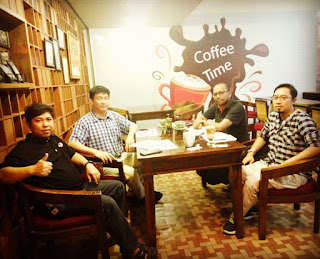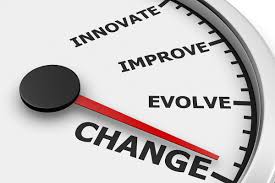The Japanese philosophy of Kaizen can improve your life in 3 easy steps
In the years following World War II, American auto executives visited Toyota manufacturing plants in Japan to examine how the company was able to produce so many vehicles so quickly. They discovered a humanizing philosophy driving the manufacturer’s innovation, one that intrinsically motivated workers to change process, procedures, and themselves for the better.
Instead of punishing employees for errors, Toyota encouraged workers to stop production at any time to fix a problem or provide suggestions to management about how to reduce waste and improve efficiency. As a result, Toyota’s factories experienced fewer costly errors and benefitted from consistent improvement. This philosophy, Kaizen, is one that the American executives took home and has since revolutionized multiple industries, from healthcare to software development.
Put simply, the Kaizen approach is based on the belief that continuous, incremental improvement adds up to substantial change over time. When teams or groups implement Kaizen, they circumvent the upheaval, unrest, and mistakes that often go hand-in-hand with major innovation. It’s fitting that the Japanese word kaizen translates to “good change.”
While Kaizen is typically applied to industrial processes like supply chain and logistics, it’s useful in the context of personal productivity and work habits, too. Think of it as an antidote to every “go big or go home” motivational trope you’ve seen in your newsfeed. Kaizen is less about hustle and working more, and more about thoughtful adjustments, accepting failure, and applying learnings in order to work better.
The basic principles of the Kaizen approach
Underlying the Kaizen approach is a dedication to improving effectiveness, satisfaction, and waste. The core tenets of continuous improvement of Kaizen include:
- Standardizing a process so that it’s repeatable and organized
- Focusing on measurability and evaluating progress using data
- Comparing results against your requirements (did you deliver on your promise?)
- Innovating new and better ways to achieve similar results
- Responding to changing circumstance and evolving your methods over time
Since Kaizen is a philosophy, and not a rigid system, it’s flexible and adaptable to your working style, preferences, and personality. You can plug-and-play select practices depending on what resonates for you. For example, some people live by the mantra to “Get 1% better each day.” Others opt to incorporate Kaizen through the 5S approach (Sort, Straighten, Shine, Standardize, Sustain).
Three ways to apply the Kaizen philosophy on a personal level
If Kaizen’s principles feel burdensome in theory, rest assured that humans are hardwired to seek improvement, meaning most of these principles can be applied intuitively.
Here are three ways you can start implementing the Kaizen approach in your work-life right now. Whether you’re trying to be more productive at the office by reducing interruptions or attempting to finish a creative project like writing a book, these tips can help you get there—gradually.
1. Determine where your time and energy is wasted.
One of Kaizen’s core principles is waste reduction, and it comes into play in more scenarios than you might think. A key to unlocking more productivity is to do less, not more.
If you can never find the time to devote to the projects that are important to you, it’s possible that some of your time is being wasted by unnecessary tasks. Take stock of what you need to stop doing. We’re frequently not aware of the attentional leaks that permeate our day, so start by auditing your schedule.
Track every task you perform and the time involved for a few weeks. Once you have this pool of data, assess whether each task is truly needed or if you are just operating on autopilot. If you determine a task is mission critical, how can you do it better or faster by scaling yourself? Could you create a template for certain reports or emails you write, for instance?
Many of the leaders I work with find this exercise eye-opening. They’re able to liberate themselves from useless meetings that don’t actually require their presence, or cut out obligations and to-do’s that aren’t producing any tangible results beyond draining them.
2. Ask yourself what small steps you can make to be more productive or efficient.
As you start to identify areas for improvement, the key is to start with bite-sized changes. Think tiny. Often, our instinct is to go big. We get impatient and want results, if not overnight, then within a week or a month. But when you consider that incremental improvements over time are much more likely to stick (as opposed to sweeping, cataclysmic changes), starting small seems increasingly appealing, although it does take patience.
If, for example, you’re trying to boost your productivity at the office so you don’t have to work through lunch, brainstorm what minimally disruptive changes might help you accomplish that. Maybe it means arriving to work 15 minutes early each morning so you’re not rushing, or setting an alarm on your phone to remind you to take a break, making you less likely to plow through and ignore your rumbling stomach.
If those methods don’t make a difference, keep trying something else. And if they do make a difference, continue to refine your newfound habit, little by little.
3. Set aside time to review what’s working and what could be improved.
When we get busy, we don’t take time to evaluate what’s working and what isn’t. But for Kaizen to work, you need to reflect on how things are going, especially when you sense a friction point.
Have you read?
Why wasting your time could be the key to productivity
Like a Toyota employee stopping the production line, pause and document points where your personal productivity hits a snag or you find yourself getting annoyed, frustrated, or distracted. Those reactions signal a break down in the system that need to be repaired, but more importantly, an opportunity to practice self-control and slow down.
You can implement an official one-hour weekly review on a Sunday night to prioritize your focus and projects for the week ahead. It’s important to strike a balance between optimization and appreciation by integrating both positive and negative experiences. Try a twist on the typical daily gratitude practice:
What was the “high point” of your day?
What was your “low point” of the day?
What could you improve upon for next time?
What did you feel proud of today?
What did you learn?
The result of using the Kaizen philosophy
Kaizen is the alternative to the feelings of defeat and failure we experience after setting overly ambitious resolutions or goals, only to abandon them a few weeks later. And while Kaizen won’t change your life overnight, it can set significant change into motion—bit by bit.
Sumber :
https://www.weforum.org/agenda/2019/07/the-japanese-philosophy-of-kaizen-can-reinvent-your-daily-routine?

















